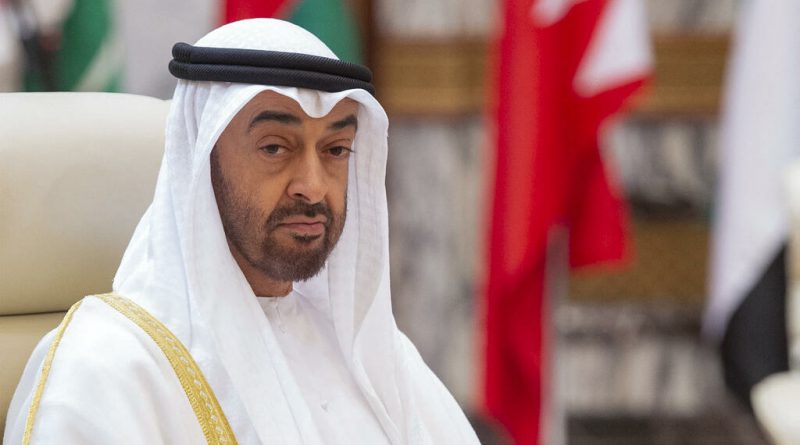UAE’s newly elected ruler sees Iran, Islamists as threat to Gulf safe haven
Dubai – United Arab Emirates strongman Sheikh Mohammed bin Zayed al-Nahyan, who was formally elected president on Saturday, led a realignment of the Middle East that created a new anti-Iran axis with Israel and fought a rising tide of political Islam in the region.
Working behind the scenes for years as de facto leader, Sheikh Mohammed, 61, transformed the UAE military into a high-tech force, which coupled with its oil wealth and business hub status, extended Emirati influence internationally.
Mohammed began wielding power in a period when his half-brother President Sheikh Khalifa bin Zayed, who died on Friday, suffered bouts of illness, including a stroke in 2014.
MbZ, as he is known, was driven by a “certain fatalistic line of thinking” that Gulf Arab rulers could no longer rely on their main supporter the United States, according to former U.S. envoy to the UAE Barbara Leaf, especially after Washington abandoned Egypt’s Hosni Mubarak during the 2011 Arab Spring.
From his power base in the capital Abu Dhabi, Sheikh Mohammed issued a “calm and cold” warning to then-President Barack Obama not to back uprisings that could spread and endanger Gulf dynastic rule, according to Obama’s memoir, which described MbZ as the “savviest” Gulf leader.
A U.S. State Department official serving in the Biden administration, which has had fraught ties with the UAE in recent months, described him as a strategist who brings historical perspective to discussions.
“He will talk not only about the present, but go back years, decades, in some cases, speaking to trends over time,” the official said.
Stability Foremost
Although he says he was attracted to their Islamist ideology in his youth, MbZ has framed the Muslim Brotherhood as one of the gravest threats to stability in the Middle East.
Like Saudi Arabia, the UAE holds the Brotherhood of betrayal after it sheltered members persecuted in Egypt in the 1960s, only to see them work for change in their host countries.
“I am an Arab, I am a Muslim, and I pray. And in the 1970s and early 1980s I was one of them. I believe these guys have an agenda,” MbZ said in a 2007 meeting with U.S. officials, according to Wikileaks.
Educated in the UAE and the military officer’s college at Sandhurst in Britain, Sheikh Mohammed’s mistrust of Islamists heightened after 2001, when two of his countrymen were among the 19 hijackers in the Sept. 11 attacks on the United States.
“He looked around and saw that many of the younger generation in the region were very attracted to Osama bin Laden’s anti-Western mantra,” another diplomat said. “As he once said to me: ‘If they can do it to you, they can do it to us.'”
Despite years of enmity, MbZ chose to engage with Iran and Turkey as COVID-19 and rising economic competition with Saudi Arabia turned focus to development, pushing the UAE towards further liberalisation while keeping a lid on political dissent.
Seen as a moderniser at home and a charismatic people’s man by many diplomats, MbZ promoted the previously low-profile Abu Dhabi, which holds the UAE’s oil wealth, by spurring development in energy, infrastructure and technology.
As deputy supreme commander of armed forces he was credited with turning the UAE military into one of the most effective in the Arab world, according to experts who say he instituted military service to instil nationalism rather than entitlement among an affluent population.
“He doesn’t beat around the bush … he wants to know what isn’t working well, not just what’s working,” said a source with access to Sheikh Mohammed.


